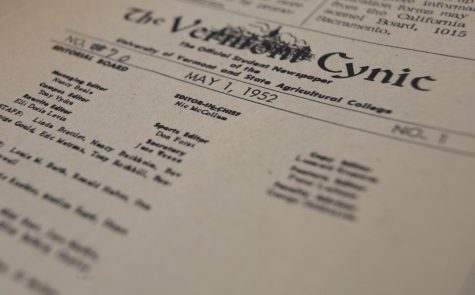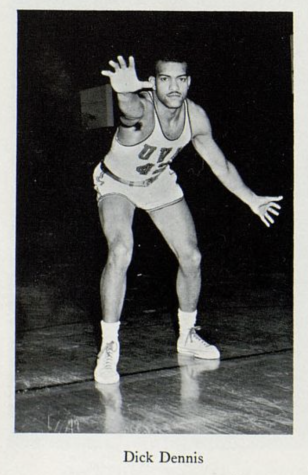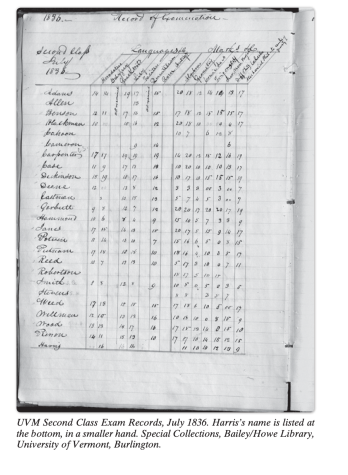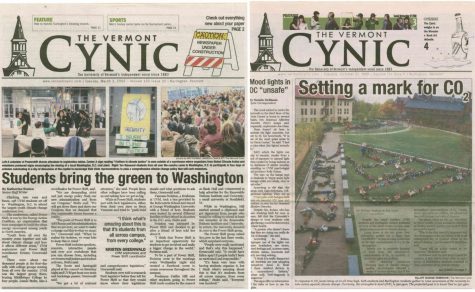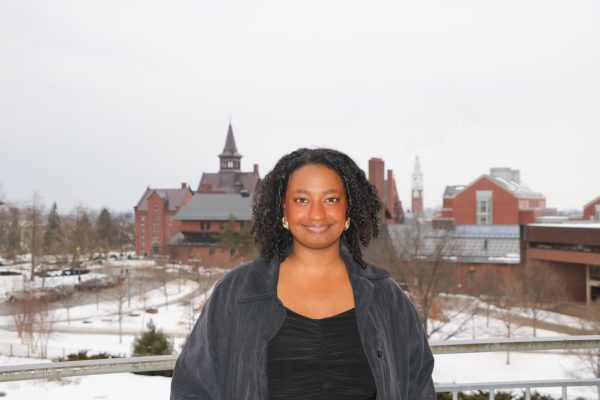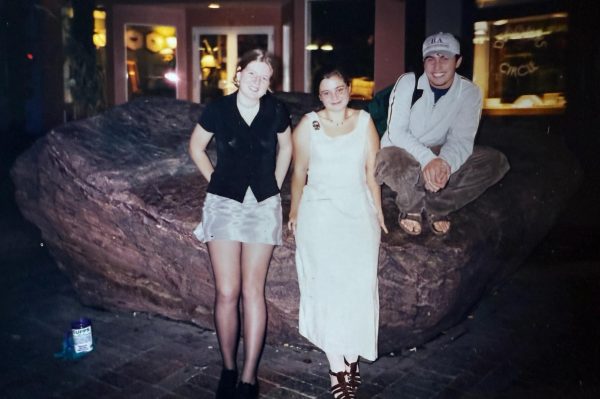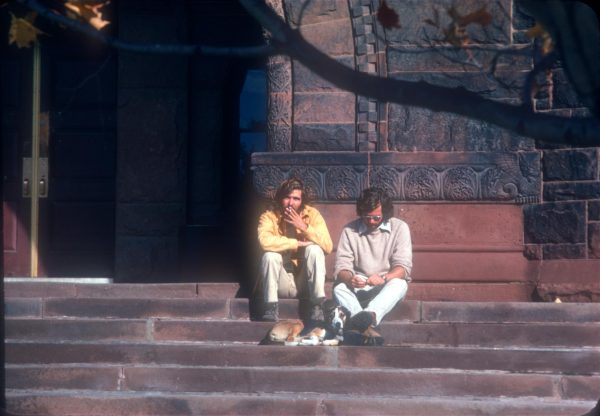New Hampshire and Back
Manchester, New Hampshire is waking up. Reporters litter the streets, cameras dangling around their necks, poking microphones into faces, and scribbling in notebooks. Locals and tourists walk by clutching copies of Manchester’s The Union-Leader or the New York Times. The sidewalk is frozen, clumps of ice mounded near the drains. Remnants of Christmas hang from a few lampposts. Lieberman and Kucinich signs stick haphazardly out of the snow.
Clusters of volunteers waving red, white and blue Dean, Kerry, Edwards, and Clark signs mark every intersection. Drivers honk at the cheering droves. Hundreds of big, blocky, black cameras scan Elm Street capturing the energy and excitement in the otherwise sleepy downtown Manchester.
Young, bundled volunteers jump up and down on the sidewalks, pump their arms, and breathe puffs of fog into the chill January air. Six of the seven candidates fighting for the democratic presidential nomination are in Manchester, New Hampshire this weekend campaigning across the state, rallying voters, collecting supporters, and basically selling themselves to the public with little time to rest or eat. Candidates bustle from town to town, throughout the barren, winter countryside to deliver stump speeches, shake hands with voters, and answer any specific questions those voters might raise.
This year, in New Hampshire, voters are taking their job very seriously. It’s not just that there are a number of strong, potential leaders capable of winning the Democratic Party’s nomination. Ellen Reid Gold says on January 26, 2004 at a Dean rally, “I really like several of these candidates.” Beside her, Steve Stoddard agrees, “This is the best field of candidates I’ve seen in a long time.” But the most important thing, Gold says, is that she “wants to win.”
This year, voters have a plan. The democratic voters of New Hampshire are uniting with one goal, with one common purpose–to oust George W. Bush from the White House. Rosemary Lefebbre says on January 26, 2004 waiting for John Edwards to arrive at Mary Anne’s Diner in Derry, “Usually [I] just read about [the candidates] in the paper. This is the first time [I’ve] been involved.” “Why this time?” “Because this time, we gotta get the Big Guy out!” In New Hampshire, voters usually vote with their hearts, for that candidate that stirs them up, the one they really, truly believe in. But this year, New Hampshire residents will vote, together, united, for the one candidate who can beat George W. Bush.
Democratic presidential candidate hopeful Dennis Kucinich realizes the importance of this election–the importance of winning against an incumbent republican president. He warns on January 24, 2004 in a classroom at University of Southern New Hampshire in Manchester that a democratic candidate who runs his campaign solely as being against the war doesn’t stand a chance against President Bush. “The Democratic Party is about to forfeit the election over Iraq,” Kucinich says.
On January 25, 2004 as presidential candidate John Kerry stands atop a platform surrounded by a sea of faces, in front of a wall-sized American flag backdrop and a large following of firefighters, war veterans, nurses, and utility workers, in the lavender and white gym of Nashua Senior High School in Nashua, he delivers his signature “leave no one behind” speech. That is, of course, leave no one behind except President Bush. Kerry raises his voice into the microphone, “The one person in America who deserves to be laid off is Bush!”
Presidential hopeful, John Edwards, has the same goal of driving President Bush out of the white house, but delivers a slightly different message on January 26, 2004 at Mary Anne’s Diner in Derry. Edwards, being from North Carolina, thinks he can win the southern vote from Bush, a vote that no other candidate may be able to rally. Edwards, speaking in a smooth drawl, says, “People ask, who is this guy? This [Edwards] is the guy who can beat Bush everywhere in America!”
Later that day, at the Palace Theatre in Manchester, Howard Dean, perhaps the most notorious Democratic-candidate-Bush-basher, talks about Bush’s recent proposed funding for Mars exploration. Dean says about Bush, “I would personally vote for his trip to Mars!”
But not everyone is so totally convinced the Democrats need to beat Bush. Dan Tinkham from Derry says, “[Until] I hear one guy stand up and say how he’s going to clean up this mess in Iraq, I’m still for Bush.”On January 28, 2004, the day after the votes are tallied from the New Hampshire primary, candidates leave the intimate New England setting, and the race for the states begins. They fly all over the country-South Carolina, New Mexico, Missouri, North Dakota, etc-touching down briefly in airports or hotel lobbies. They give their signature speeches, shake a few hands, and climb back into the airplane and travel on. It’s faced paced, exhausting, and each candidate can only pray his money will hold out through travel expenses, afford a little extra for TV commercials, and last long enough to pay the staff.
But after all the rallies, all the handshakes, and all the money spent, the real question is, will there be a Democratic candidate who can beat President George W. Bush?


